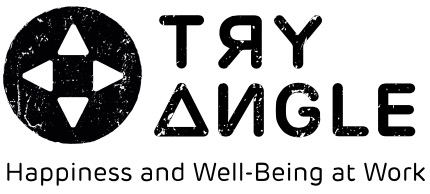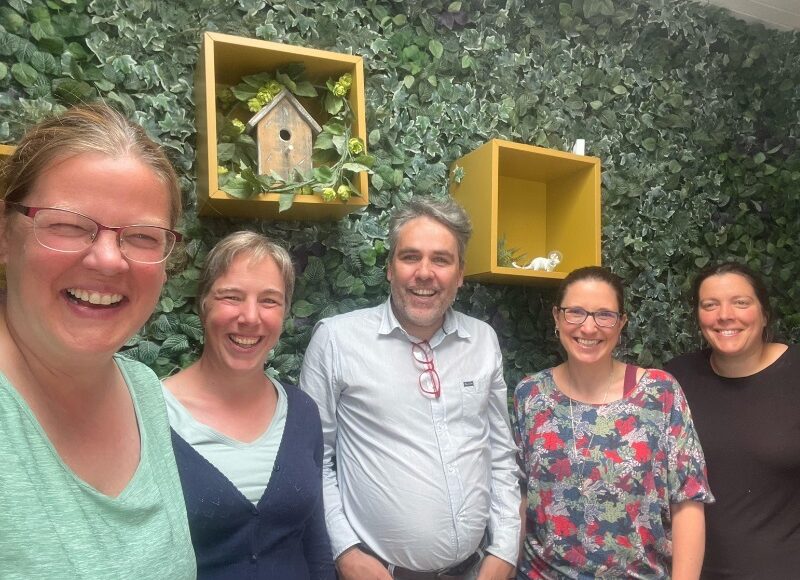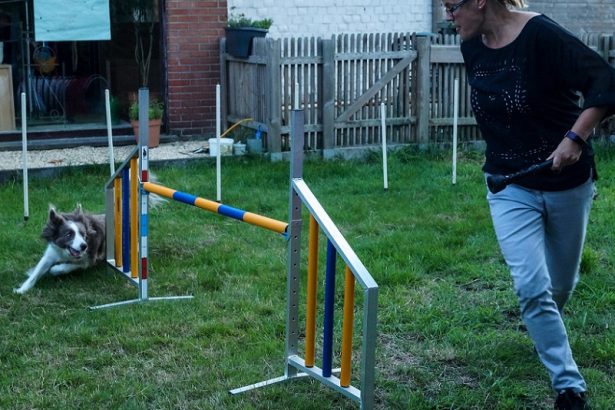In a world that’s constantly changing, companies are both challenged and invited to adapt to new standards and embrace innovative approaches to improve the lives of their employees and at the same time, also their productivity.
Hence, we are very proud to announce a special change within our own organisation!
As from September 1st 2023, Tryangle is introducing the ‘true’ four-day work week. This means that our core team will henceforth work 32 hours a week in exchange for the remuneration of a full-time job.
Embracing a new work paradigm
Gone are the days when success was merely measured in terms of financial growth. A different view of work has emerged, with the modern work landscape gradually shifting to a more holistic perspective, focusing not only on profit, but also on sustainable business models and employee well-being and happiness at work.
Not only does this view fuel our vision and core business with which we help our clients, we also want to strive for a healthier, more flexible and sustainable working environment for our own team members so that they can develop, innovate and find fulfilment in their jobs.
An international success – learning from the pioneers
All over the world, companies and countries have experimented with the four-day working week and the results are nothing short of remarkable. Research and case studies consistently show that by offering employees a shorter working week while maintaining their full-time compensation, they experience better mental and physical health, more positive job satisfaction and greater engagement. Their work fits better into their lives.
Moreover, these initiatives have debunked the myth that working less should lead to less productivity. On the contrary, companies have found that the shortened working week encourages employees to be more focused and efficient, leading to similar performance and stable output levels even with 20% fewer hours. The improved physical and mental health and increased engagement leads to less absenteeism, lower turnover and more better work performance, which in fact leads to relatively higher efficiency and has even led to increased turnover. It has long ceased to surprise us that happiness at work leads to a lot of positive spillover effects for organisations.
In other words, this is a concept that is increasingly attracting attention, but it is above all a very positive story, as the vast majority of employees as well as companies that participated in the pilot do not want to return to the old system.
Different from the Belgian approach
With this changed model for our own employees, we also explicitly take a different approach than the concept proposed in the Belgian labour deal, where the 40-hour working time of employees is not reduced in the face of salary retention, but only redistriuted over four longer 10-hour working days.
As far as we are concerned, the positive effects of workplace and working time flexibility are not up for discussion, but we would like to challenge the Belgian approach and the potential missed opportunities here. In addition, recent numbers underline that Belgian companies and employees have not been really keen on adapting this model.
Surprising sources of and views on productivity
How can job performance be maintained with a 20% reduction in working hours? It still remains a remarkable and counterintuitive appraoch for many. How can this kind of efficiency be achieved?
Firstly, the four-day work week provides an important opportunity to have open and bold conversations about presenteeism and the real added value of the talent in the team. Or as Simon Ursell, the managing director of one of the participating organisations in the UK pilot project put it, “A lot of people don’t realise how much time we waste at work.”
The solution we will adopt at Tryangle is taking up the challenge with openness, creativity and a different way of working. By the way, there are many possible sources for the improved productivity: in stronger communication, more efficient meetings, strong technical tools, more effective teamwork and talent management, improved processes,… You can read more about it in this article.
Secondly, we can take a differnt look at the concept of productivity. After all, what do employees do with the extra day off? And what is the (social) value of the extra attention given to children, to care for the elderly, or for volunteering and other social engagement options? Or the impact of the joy and satisfaction, added value and sense of connection from the side job or business idea that a particular employee can now easily explore? Or what about the impact of sufficient sleep and rest, the benefits of mind wandering and the increased creativity and inspiration thanks to being able to pursue hobbies and other interests? Does this not all have an impact on the quality of our lives as well as the quality of the work we will produce and the interactions with customers, suppliers and colleagues in our ‘main job’?
Conditions for success
Of course, there are aspects that can positively or negatively influence the chances of success of such a work week in a particular organisation. It all depends on both the trust and agreements existing within the specific company (culture) as well as the employees’ sense of responsibility and maturity.
There could always be certain personality factors or preferences of specific employees that would make them completely thrive in such a system, or completely dislike it. Indeed, outcomes from specific pilot projects show that on average, across all employees, no increase was reported in work intensity, work pace or complexity of work; and the same goes for stress levels. That means that one group of employees saw no change, a certain group reported more work intensity or stress within the new system and a final group reported less, so the overall figure balanced out.
The key question in the application of concepts around flexible work always remains “What works for this particular employee?”. Of course, self-knowledge, insight into personal energy givers and takers and measurement of concrete performance remain important guiding principles.
Finally, the specific business environment also determines the the chances of succes of this model. The model can probably be more easily applied in a knowledge-worker sector than in a production environment, organisations with time management systems or billable hours. However, in our opinion, it is feasible in just about any context, thanks to the benefits regarding overall well-being, provided that open and creative discussions can be held about the tasks and a potentially completely different way of working.
Business leaders who have the courage to invest in this model will, in our opinion, definitely reap the benefits from it. and it is precisely for this reason that we at Tryangle choose to take this leap!
Our journey forward
The Tryangle team is a close-knit team connected by our shared vision and values. We not only want to help other companies to prioritise the wellbeing and happiness of their staff, but also want to pioneer and inspire other organisations with the wellbeing and happiness at work interventions we support our own team with.
We therefore invite fellow organisations to join us as we continue to work and contribute to transforming the modern workplace into an environment that floats on principles of balance, innovation and people-centred values.





